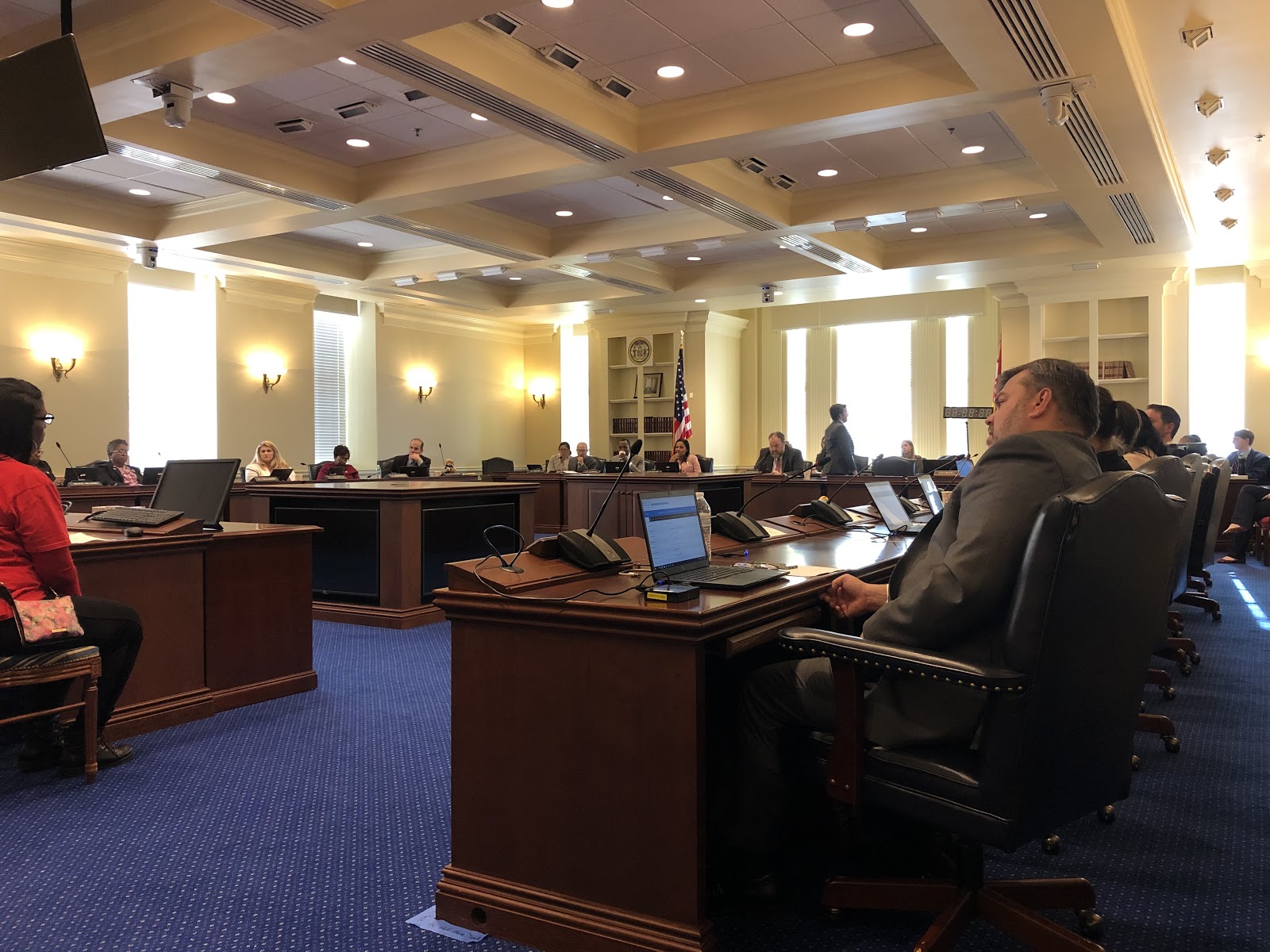ANNAPOLIS, MARYLAND — A bill returning to the Maryland legislature this session aims to regulate certain sales and transfers of rifles and shotguns.
Maryland law requires the regulation of the “sale, transfer, rental, and possession of regulated firearms, which consist of handguns and assault weapons,” according to a state analysis. However, this regulation does not currently apply to rifles and shotguns, which lead sponsor of House bill 4, Delegate Vanessa Atterbeary, D-Howard, has been striving to pass.
Under the bill, in many cases of a transfer of a long gun, a third-party licensed gun dealer would be involved, and the transfer must be done under three conditions: The sale must be from the owner; there must be a background check done on the transferee through the FBI National Instant Criminal Background Check System; and the transfer must comply with all federal and state law that would apply to the transfer.
Atterbeary told Capital News Service on Tuesday that some challenges against the bill include citizens not reading the bill and assuming that “I’m taking away their Second Amendment right,” which allows for the possession of firearms.
She said that all the bill will be doing is to “make sure all gun sales go through a background check.”
The legislation failed last year after a slow vote in a state Senate committee.
Mark Pennak, president of Maryland Shall Issue, a volunteer-run organization aimed at preserving and advancing gun owners’ rights, expressed his concerns over the term “transfers” in the bill, which he said could be “defined in an extremely broad manner.”
Because transfers and loans are common practices in rural areas where one person could casually loan another person a rifle, this could be deemed as a crime should the bill take effect, Pennak told Capital News Service on Tuesday.
Pennak also expressed his concerns that the bill would make the process of purchasing a rifle or shotgun more time-consuming and expensive.
However, the bill would not apply in certain cases, including but not limited to when the transfer is temporary and during a performance or a practice in the presence of the gun owner, or among certain immediate family members, according to the state legislative analysis.
The hearing room on Wednesday was full and time for oral testimony was cut to 90 seconds per speaker.
“All the gun owners I know say that they would far and away accept any small inconvenience (like a background check for a rifle or long gun) if it had the possibility of saving even one life,” Allison Berkowitz wrote in testimony she planned to share with the committee.
Dr. Paul Nestadt, an assistant professor at the Johns Hopkins Hospital Department of Psychiatry and Behavioral Sciences, told lawmakers that the majority of firearm deaths are suicides and one-third of firearm suicides in Maryland are from rifles and shotguns.
Nestadt described a case in which a person was trying to purchase a handgun to shoot his stepfather, however because of the required background checks, he was given the option to purchase a rifle or shotgun for a bit more money.
But David Weber, state director of the National Rifle Association, said that the bill would infringe upon the rights of law-abiding citizens.
Delegate Sandy Bartlett, D-Anne Arundel, questioned the burden of the background check if one is a law-abiding citizen.
Weber gave an example that if he were to leave his nephews with his gun while out hunting to run back to his truck to get more stuff, he would be deemed a criminal since he transferred a gun to someone without his presence.
Sen. Susan Lee, lead sponsor of an identical, pending bill on the Senate side, on Tuesday said, “The bill is so necessary because it closes a loophole.”
According to figures from the FBI, there have been 26 homicides from 2014 to 2017 from long guns in Maryland.
In 2018, a gunman with a shotgun he acquired legally fatally shot five employees at the Capital Gazette newspaper office in Annapolis, Maryland.
Andrea Chamblee’s husband, John McNamara, was fatally shot in the newsroom.
She is now a volunteer at the Moms Demand Action — a group urging lawmakers to pass legislation that would promote gun safety — and came to the hearing to give testimony.
While holding back tears, Chamblee said that though there are a certain number of victims of gun violence, there are many more who are not counted but who are impacted by the death of the victims of gun violence.
“I’m not counted,” she said.
Lee said that she anticipates the same Senate committee will hold a hearing within the coming two weeks. The new chairman of that committee told Capital News Service that this legislation would be a priority this session.
Violations under the bill would be a misdemeanor, subject to up to five years in prison and/or up to $10,000 fine.
Providing false information while performing a transaction is subject to up to three years in prison and/or up to $5,000 fine, under the bill.
“At the end of the day, we should treat all guns the same,” said Atterbeary.

